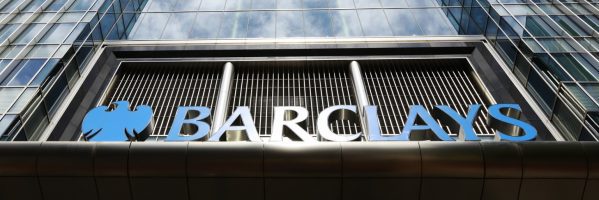Cambridge Judge Announces New Barclays Partnership Course

Meet the Barclays Scale Up UK Programme.
It’s a 36-week long course by the Judge Business School at the University of Cambridge in partnership with British multinational mega-bank Barclays.
The new course plans to help businesses address core growth problems, according to a recent press release. Professors Stelios Kavadias and Hanadi Jabado of the School’s Entrepreneurship Centre will lead the course—and they’ll get help from other industry experts, too. Both instructors carry impressive resumes: Kavadias is the Margaret Thatcher Professor of Enterprise Studies in Innovation & Growth, and Director of the school’s Entrepreneurship Centre. Jabado is Executive Director of the Entrepreneurship Centre.
“Small businesses face many hurdles in successfully scaling up, so Cambridge Judge Business School is offering companies the opportunity to upgrade their managerial skillsets to get access to capital and scale their organization up,” Cambridge Judge Dean Christoph Loch said in the press release. “The new Barclays Scale Up UK Programme will provide a clear framework for addressing these issues, and the business school is delighted to provide its expertise.”
Company founders and senior executive teams at the bank will now have access to essential lessons in tapping into growth that’ll only benefit the business. Barclays clients that still have room to grow can take the course. That means any business, from startups to those making more than £20 million in annual sales. The course will take in no more than 20 leadership teams.
The course is made up of several different major components including marketing, operational excellence, recruitment, and funding. These, among others, are essential to building growth in new businesses.
“From talking to our clients, we recognize there is a knowledge gap when it comes to leadership skills, especially for ambitious businesses growing at speed, and we see this partnership with Cambridge Judge as an opportunity to help bridge this gap for our clients and to further cement our commitment to supporting the eco-system beyond traditional banking,” Richard Heggie, Head of High-Growth and Entrepreneurs at Barclays, said.
Which Cambridge Judge Scholarships Are Right For You?

Money can be a compounding stressor when it comes to earning an MBA. Sure, the degree is worth it, but achieving it requires serious planning. With books, housing, and a social life, the bills add up. Luckily, most universities and business schools offer scholarships to make it easier for students to attend.
Take London’s Cambridge Judge Business School, for example. The Financial Times ranked the business school’s MBA program as the fifth best in the world in 2017, and the best overall in the UK. To help join one of the world’s preeminent business institutions, a number of scholarships are available. Some focus on academic achievement, but others are about equity and go toward students of a specific nationality or gender. The institution recognizes that this type of financial assistance is necessary—after all, one year of tuition costs £49,000 (nearly $64,000 USD). That, of course, doesn’t include books or meals.
Those interested in applying for these Cambridge Judge scholarships must do so before the school year officially begins.
The Boustany Foundation Scholarship: The Boustany Foundation Scholarship offers £23,000 in financial assistance, as well as any travel costs. The scholarship is granted once every two years with priority given to Lebanese nationals. However, an applicant must be “outstanding and highly meriting.”
The Culture, Arts and Media Bursary: This scholarship looks at candidates interested in working in media, which can include fields such as journalism, creative writing, or production. The offer caps at £10,000. Once the scholarship is offered, applicants are expected to compete through an essay and give a talk on the media to the class.
The Ruth Whaley Bursary for Women in Science: This is a scholarship specifically for women working in finance. The Ruth Whaley Bursary gives a candidate £10,000—as well as the opportunity to mentor with Ruth Whaley, the founder of New York-based risk management consulting firm Barset Consulting LLC. The goal? That more women take up senior finance positions.
The EY Scholarship for Angolan Residents: This is the only scholarship that covers the business school’s full-tuition. That includes college fees, living expenses, and a flight back home to Angola. Applicants for the EY Scholarship are required to write an essay on how they’d use their time at Cambridge to further sustainable development to Angola.
The Sainsbury Bursary Scheme: Despite what the name suggests, this scholarship is no scheme. It recognizes applicants who have worked in the charity and volunteer sectors, offering them £14,000-28,000. They must show how they’d use their skills to continue this work. UK citizens working in the UK are given priority.
The Maissa Karim Scholarship: This £2,500 award is in honor of the lake Maissa Karim, a member of the school’s 2005 program. Now, that might not sound like much, but the money goes to a candidate who wouldn’t be able to do the MBA program without financial assistance. Every dollar counts.
The St. Catherine’s Benavitch Scholarship: This generous gift offers five candidates £10,000 each. Named after the late Maurice and Natalie Benavitch, the scholarship is supposed to develop tomorrow’s business leaders. Those who receive the award will join St Catherine’s College, a five-minute walk from Cambridge Judge. That means that five lucky candidates will have access to not one, but two university campuses.
Your Guide To London’s Executive MBA Programs

Even after many years on-the-job learning, many business professionals may choose to pursue a formal advanced business education. With the chance to earn an Executive MBA, experienced professionals can pursue a degree more tailored to their particular experience level and career goals. EMBA graduates may find other benefits as well, including a 11.6 percent salary increase after graduation. Other tangible benefits can be seen in the form of career growth and increased leadership opportunities, development of a global business mindset and the establishment of a strong peer network.
Financial Times Reveals Top Finance MBAs for 2017

The business end of business school has become a great cause of concern, particularly since the bubble burst in ‘08. MBAs need to be more technically adept and more comprehensively schooled to remain competitive in the financial services industry. As is the case with any major investment, the question is always how to get the most bang for one’s buck from whatever opportunity’s in play.
5 Best Finance MBAs London

London’s economy is built upon finance. In fact, the city is considered the world’s leading financial centeer. It’s the largest financial exporter in the world, and the city is home to exchanges, banks, brokers, investment managers, pension funds, hedge funds, insurance companies and more crucial financial positions. It’s also an important center of international finance, being home to the Bank of England—the second oldest central bank in the world. And in 2009, London handled 36.7 percent of global currency transactions.
So, there’s no doubt that London is a great place to live, work and gain an education if the finance industry is your preference. But how do you join the 315,200 people who work in London’s financial services sector? First, it’s about finding the right school for your education.
London has a variety of schools that offer an exceptional Finance MBA program. We’ve outlined the top five below along with why we think each program stands out in the crowd. Continue reading…
The Best Finance MBA Programs in London

The economy of London is dominated by the financial services industry. In fact, the city is the largest financial exporter in the world and is home to exchanges, banks, brokers, pension funds, reinsurance markets and more. It’s also a notable center of international finance and home to the second oldest central bank in the world: the Bank of England. Other major financial institutions in London include the London Stock Exchange, the London Bullion Market and HSBC.
So, it’s no wonder that London is a top destination for MBAs looking to enter the financial industry. But where should MBAs head to school for their best chance at success post graduation? We’ve outlined our top five Finance MBA programs in London to give you a head start on the process. Continue reading…
